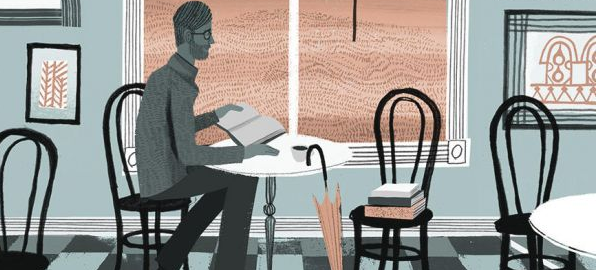The Fellows Program offers students an opportunity to participate in the NY6Think Tank.
Students get to create and publish their own projects through multimedia outlets of their choice for which they will receive a stipend of $500 (upon successful completion of the project). The program will run between February 5th and May 1st, 2015.

Finding Philosophy
In the spring of 2000, I was finishing my Ph.D. in philosophy at Emory University. The obvious path was to drift into a full-time position at a decent institution, work my dissertation into a book, zero in on a specialty, publish some articles and reviews, and lick the necessary wingtips to get tenure. But something kept me from taking such a path seriously.
On the Edge of Unemployment and the (Liberal) Arts: The Arts Edge Program at James Cook University in Queensland, Australia
Despite being one of the centers of Australian tourism, with its proximity to the Great Barrier Reef and the World Heritage listed Daintree Rainforest area, the vicinity around the Cairns campus at James Cook University, in Queensland, Australia, has one of the highest unemployment percentages in the country for young people seeking permanent work.
The Maker Movement and the Humanities: Giving Students A Larger Toolbox
The empowering rise of the do-it-yourself Maker Movement has found fertile ground in higher education, cultivating a vibrant community who believe in the effectiveness of learning through doing, sharing and mentoring, playing, exploring, and risk-taking.
Guide to Issues in Humanities Advocacy
Gathered here are bibliographies compiled by 4Humanities participants and local chapters intended to provide background on public discourse in the humanities, including definitions of the humanities, resources on the humanities “crisis,” readings on emerging models of humanities scholarship and pedagogy, and research on “framing” public debates. (See Guide)
What Are the Humanities?
Here are five good, short definitions of the humanities sampled from a variety of sources and more than one nation–something like a starter kit on the humanities (and their overlapping relation with what different countries also call “the liberal arts,” “the arts,” “humanities and arts,” and sometimes also the humanistically-oriented “social sciences”….
Phronēsis and the End of the Liberal Arts
After more than a decade as faculty and a few years now as associate provost at the category of institution perhaps most under attack in conversations about higher education in America—small, private, selective, liberal arts—my thinking tends to be focused on defending a model of higher education derided in the popular press as “elite,” “impractical,” “ineffective,” or worse. The most prominent such argument of late, of course, was Newsweek’s mid-September 2012 series on “The College Bubble,” headlined by Megan McArdle’s “Is College a Lousy Investment?” (hint: yes . . . for some).